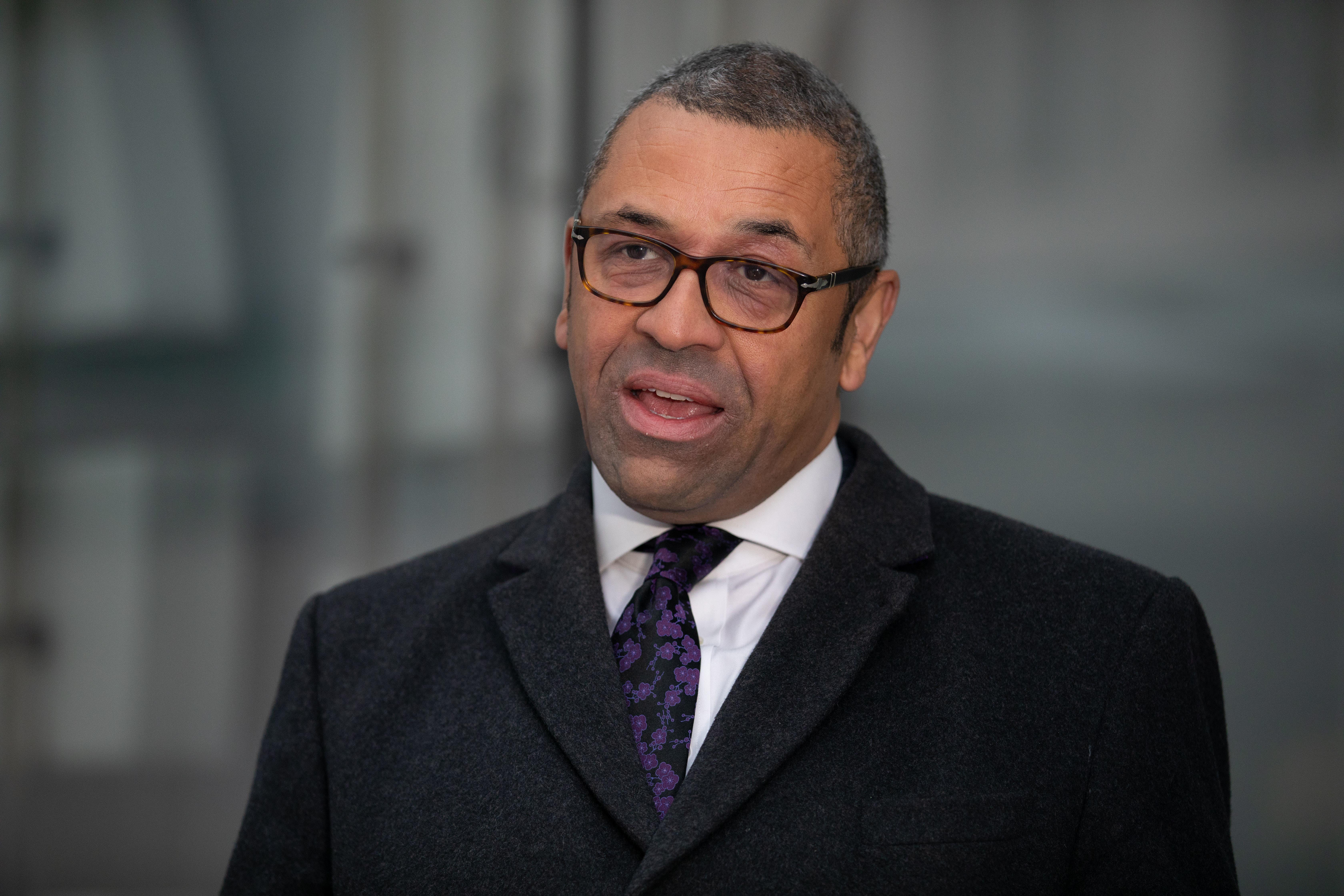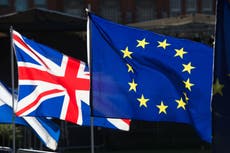The UK has the difficult task of finding friends in a post-Brexit world
Having self-exiled itself from the European Union and with lukewarm relations with the US, Britain is instead picking what the government sees as the ‘winners’ of the future, writes Sean O’Grady


So much for post-Brexit “Global Britain” then. In his first major policy speech as foreign, commonwealth and development secretary, James Cleverly, in the Victorian imperial grandeur of the Foreign Office, didn’t mention that vainglorious phrase once, and there was no sign of either the bombastic ambition of his old mentor Boris Johnson, or of Liz Truss’s hawkishness and pompous talk of liberty.
Nor, for that matter, was there much hint of the “ethical” dimension of British foreign policy that confused New Labour’s early years in office before being buried in the sands of Iraq. Long gone, of course, is the pursuit of a “golden age” of trade with China that David Cameron invested so much political capital into, including buying president Xi Jinping a pint of bitter at the local pub near Chequers (though a warming of relations with China does look more likely now – there was no mention of Hong Kong in the Cleverly address for example).
Instead, Cleverly explains, Britain is now seeking out new friends and rekindling old alliances: “We cannot hang on to the comfort blanket of our pre-existing friends and alliances and we need to grow and we need to make sure that we are having conversations in diverse countries that are moved by different philosophies.”
Having self-exiled itself from the European Union and with lukewarm relations with the US, powers that at least share traditional British values, the UK is instead picking the “winners” of the future, almost irrespective of their attitude to human rights or climate change, for example. The bar to becoming a friend of Britain is being lowered: the only “core principle” mentioned by Cleverly was “the right of all countries to decide their own future and set their own path, without being invaded or dismembered”.
It’s said about 20 nations are being targeted for attention as future regional powers and emerging industrial powers - including India, Ethiopia, Brazil (albeit post-Jair Bolsonaro), Indonesia, South Africa and Vietnam, with Poland and Romania also mentioned. Cleverly admits that nothing much will be gained for many years, but hopes that, in a quarter century or more, the UK diplomatic effort being put into developing relationships will bear fruit.
There are, of course, a few problems with that, even if it were to be pursued by all his successors until circa 2050. First, the UK needs an immediate economic boost via trade and investment to help make up for the loss of markets post-Brexit. Only a trade deal with India, complete with politically tricky generous visa provisions, is remotely imminent among the larger economies. Allowing for the vagaries of exchange rates, India’s economy is already larger than Britain’s, as is that of Indonesia and Brazil, and in the 2030s the UK may be overtaken in national income by the likes of Mexico, Turkey and South Korea (though probably not in per capita income). All of this begs the question about which would be the senior partner in any future relationship.
Second, the UK, with a modestly sized economy (which seems set for some years of stagnation) can’t compete for leverage and influence with the three largest economic blocs in the world – the US, China and, ahem, the EU. China, in particular, has already built an international network of economically-linked emerging and developing states from Sri Lanka to Peru via its “Belt and Road Initiative”, often criticised for being neo-colonial.
With only wisdom, warm words and cultural exchanges to offer, it’s not obvious what competitive edge the UK would have in concluding trade or security partnerships ahead of these economic superpowers. A better bet might be to throw in our interests with China, and Rishi Sunak has nudged policy away from designating China as a threat and towards being a mere “challenger”. But the British seem simultaneously attracted by the economic possibilities but repelled by the political realities. Confused, in other words.
Hence the search for friends. In Cleverly’s words the likes of Indonesia and South Africa “often describe themselves as ‘non-aligned’ and they are wary of committing themselves in any direction just because other countries want them to, and that is exactly as it should be.”
“Our job is to make our case and earn their support, investing in relationships based on patient diplomacy, on respect, on solidarity, and a willingness to listen … Now we must have strategic endurance, a willingness to commit to relationships for decades to come.”
This “Cleverly doctrine” seems well suited to a medium-sized economy, getting on in years, recently embroiled in a messy divorce and looking for new partners around the globe. It’s a bit amorphous, but it’s a way of coming to terms with the world as it is. The problem is that investment with Vietnam or Ethiopia could be rendered worthless the moment Beijing or Brussels flashes the cash.



Join our commenting forum
Join thought-provoking conversations, follow other Independent readers and see their replies
Comments